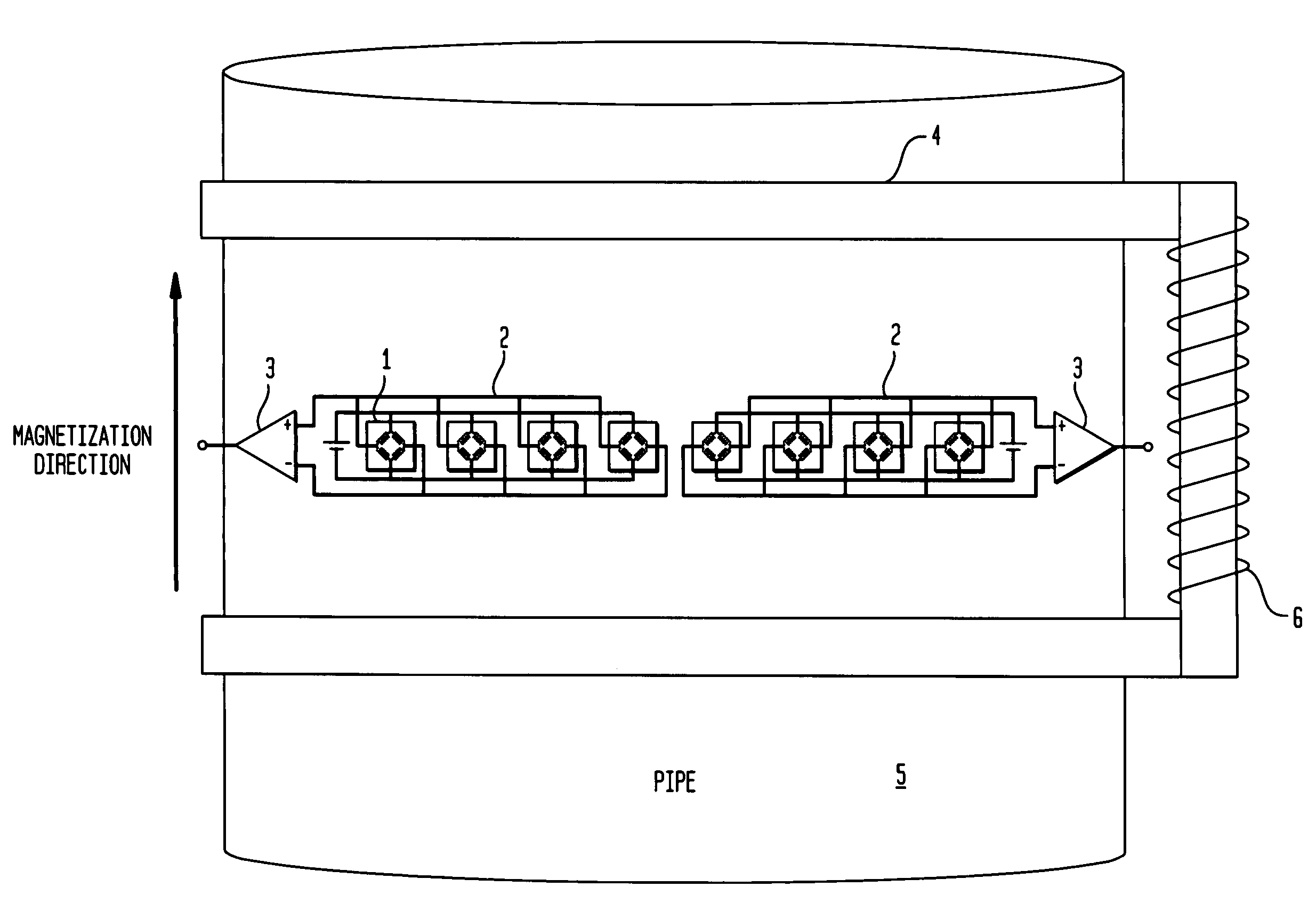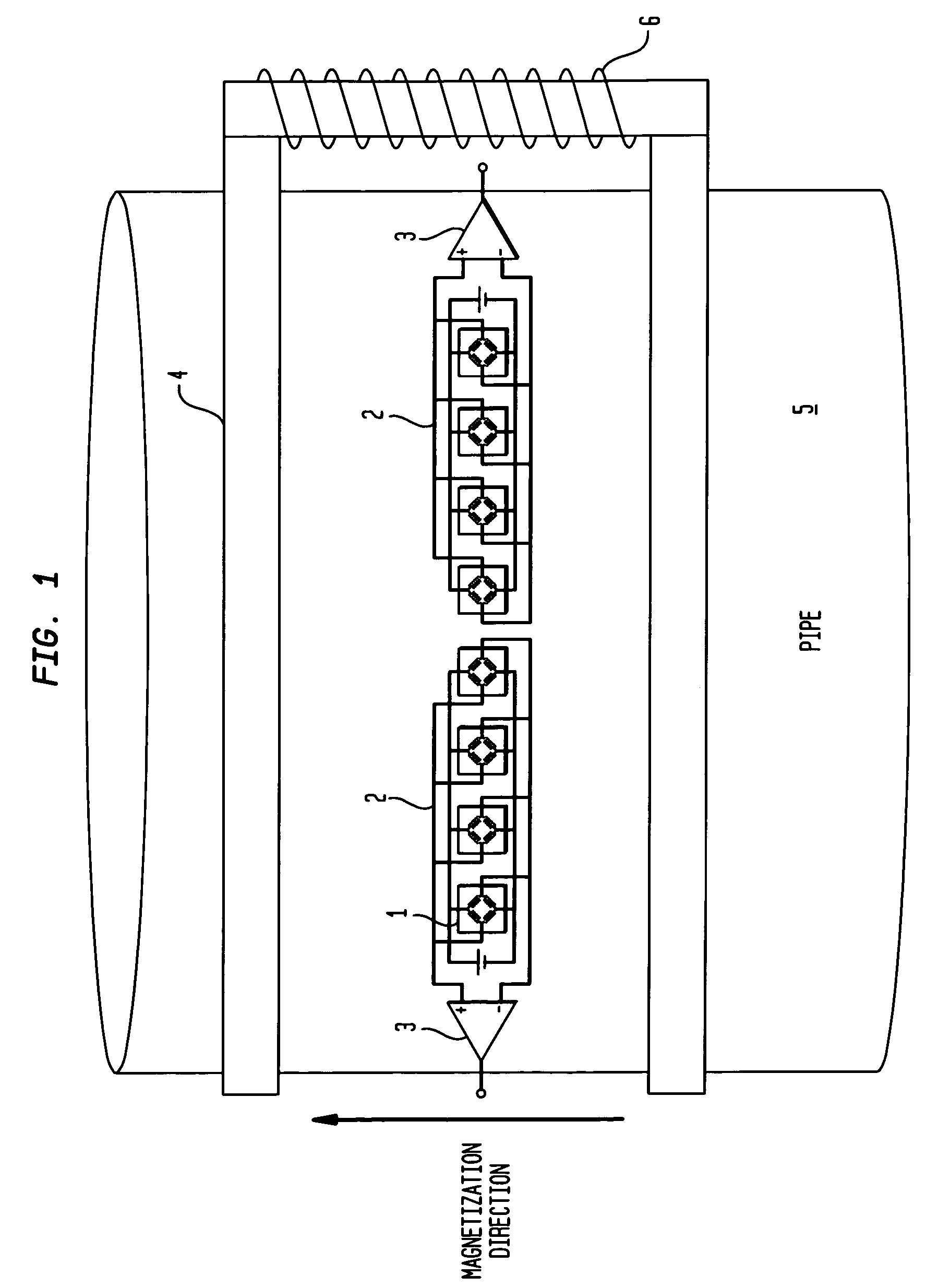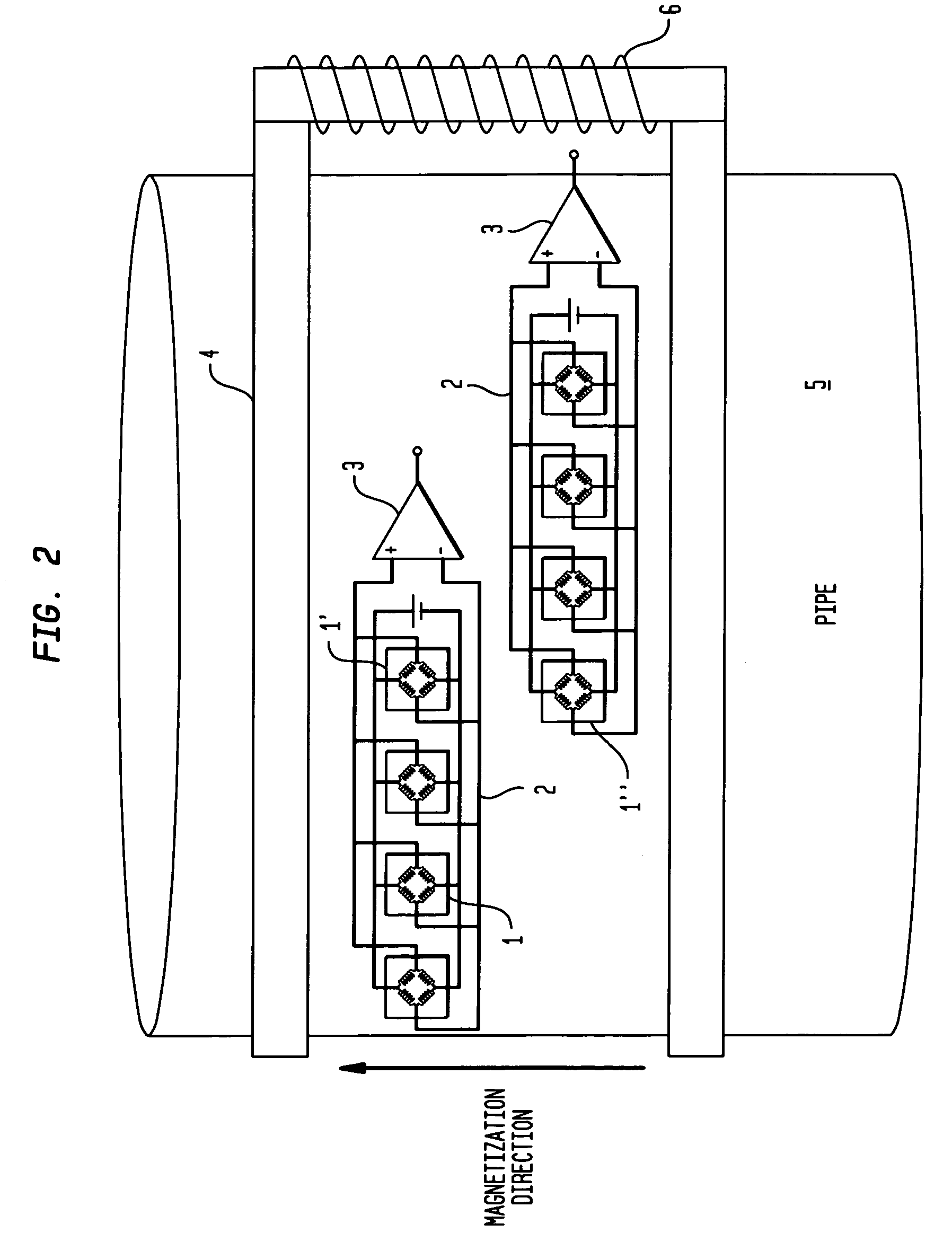Device for nondestructive testing of pipes
a non-destructive testing and pipe technology, applied in the direction of instruments, magnetic measurements, transducer types, etc., can solve the problems of complex and expensive test systems, high cost, and high labor intensity, and achieve the effect of reducing labor intensity, reducing labor intensity, and improving labor intensity
- Summary
- Abstract
- Description
- Claims
- Application Information
AI Technical Summary
Benefits of technology
Problems solved by technology
Method used
Image
Examples
Embodiment Construction
[0028]Throughout the Figures, same or corresponding elements are generally indicated by same reference numerals. These depicted embodiments are to be understood as illustrative of the invention and not as limiting in any way. It should also be understood that the drawings are not necessarily to scale and that the embodiments are sometimes illustrated by graphic symbols, phantom lines, diagrammatic representations and fragmentary views. In certain instances, details which are not necessary for an understanding of the present invention or which render other details difficult to perceive may have been omitted.
[0029]Turning now to FIG. 1, there is shown a first exemplary embodiment of an array 2 formed from a combination of GMR sensors 1 electrically connected in parallel according to the invention. The arrow shows the magnetization direction which may coincide with the testing direction of the pipe 5. A magnetizing yoke 4 transmits the magnetic flux, which may be generated by a coil 6 ...
PUM
| Property | Measurement | Unit |
|---|---|---|
| magnetic | aaaaa | aaaaa |
| magnetic-induction test | aaaaa | aaaaa |
| magnetic flux | aaaaa | aaaaa |
Abstract
Description
Claims
Application Information
 Login to View More
Login to View More - R&D
- Intellectual Property
- Life Sciences
- Materials
- Tech Scout
- Unparalleled Data Quality
- Higher Quality Content
- 60% Fewer Hallucinations
Browse by: Latest US Patents, China's latest patents, Technical Efficacy Thesaurus, Application Domain, Technology Topic, Popular Technical Reports.
© 2025 PatSnap. All rights reserved.Legal|Privacy policy|Modern Slavery Act Transparency Statement|Sitemap|About US| Contact US: help@patsnap.com



